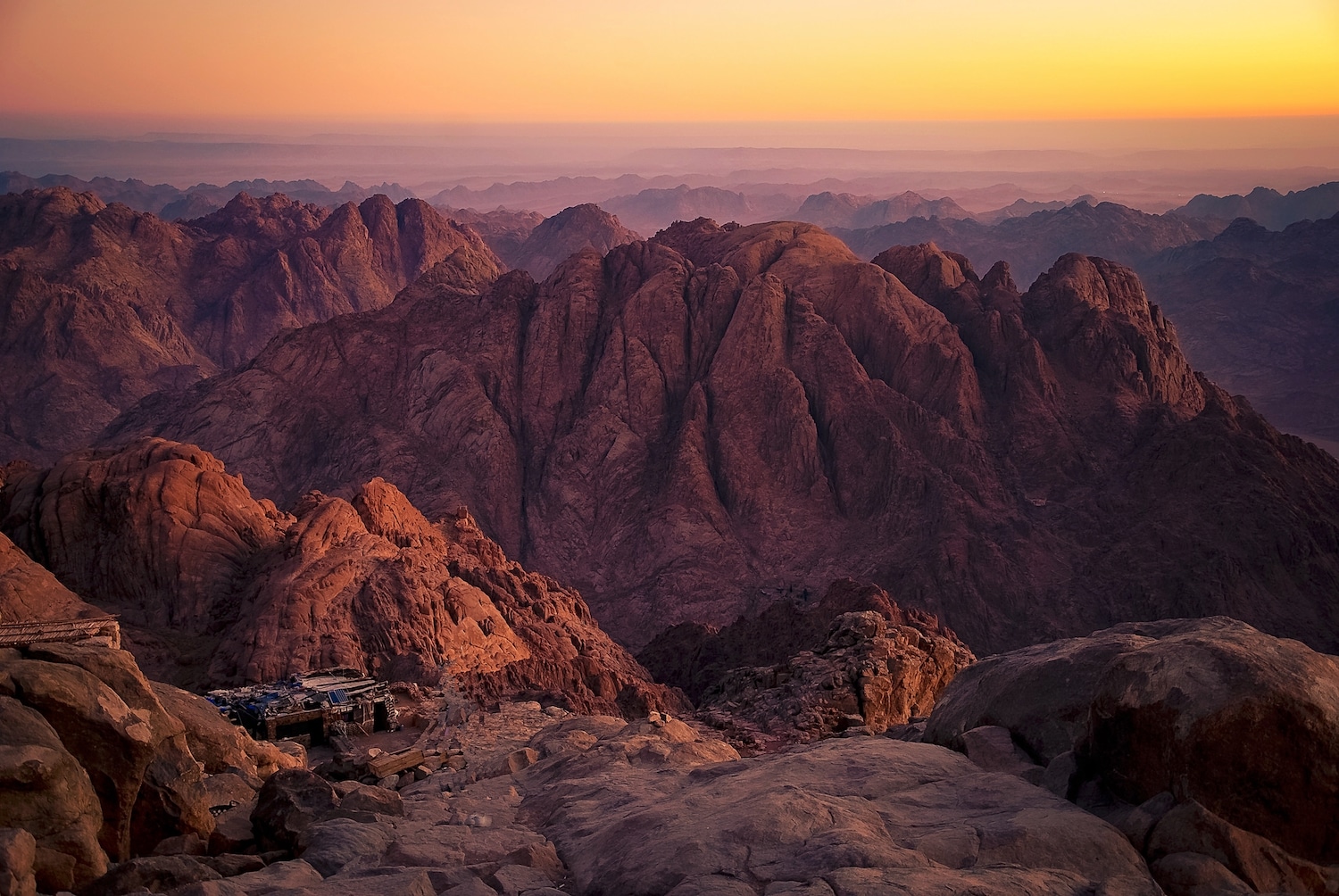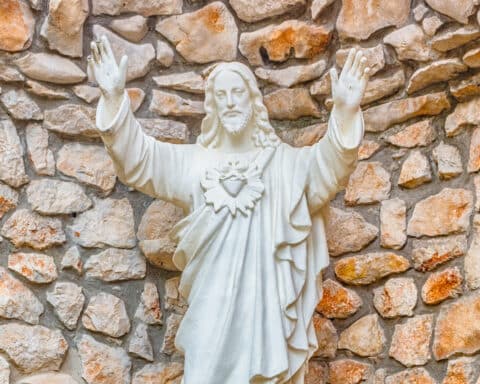I once climbed Mount Sinai — Jabal Musa it’s called today. It was very difficult.
Getting there was hard enough. By the time we arrived at St. Catherine’s, the ancient monastery nestled at the foot of the mountain, we were already worn out. Excited to be there, though, it didn’t matter. We had come to climb the mountain, so up the “Steps of Repentance” we started.
Quickly, however, for me at least, the climb got slow. As I said, it was difficult; I also didn’t realize fully, until soon each step became more labored than the next, how out of shape I was. Not only was it difficult, I wasn’t anywhere fit enough to climb mountains! Fortunately, however, I had friends — fitter, more experienced climbers than me — who stayed behind to help me. That itself was a spiritual lesson.
| June 18 – 11th Sunday in Ordinary Time |
|---|
|
Ex 19:2-6 |
It was also dangerous. After all, it was a mountain I was trying to climb. Why wouldn’t it be dangerous? The path was sometimes unclear — no rails or signs or guideposts at all. One wrong step could be your last. Paying attention was essential, no matter one’s exhaustion. My stress increased as the air thinned, as my tourist’s false sense of security vanished into the clear sky. Difficult and dangerous and out of shape, it wasn’t the spiritual experience I had anticipated.
A harsh warning
But it was still a spiritual experience, just not as I planned. You see, although I foolishly carried with me up that mountain no food, no water, not even decent shoes, I did bring my little pocket Bible. A small thing, it sits on my desk today. And as I took my rest, sometimes every few steps as I needed, I took out that Bible. And I began to read, beginning at Exodus 19.
And there I read those fearful words of God for the first time for all their beauty and all their truth. Reading these words comfortably at home, or studying them in some library, is a different experience from reading them in the desert. Those harsh words of God, harsh as we think them, for instance, those warnings about not even touching the mountain — “If anyone touches the mountain he must be put to death” (Ex 19:12) — they don’t seem as harsh in the desert and on the mountain. Sinai was and is a dangerous place. It’s a place for command, not the niceties of civilized persuasion. To keep people from getting hurt, or dying, or falling off a mountain, commands must sometimes be abrupt, clear and severe. I learned that on that mountain, about the word of God — about its harshness that, in my comfort, I often misunderstand.
Called by God
But, of course, God’s word is sometimes commanding, because God has taken possession of us, because he takes care of us, makes his own. “You shall be to me a kingdom of priests, a holy nation” (Ex 19:6). On this mountain is where God first declared it, that we are a nation of priests for him, a nation that is ours in Christ (cf. 1 Pt 2:9). Again, that’s why God’s words are sometimes commands, why they sometimes seem so demanding. Because God made us a holy nation of priests. Out of the desert of this world, on the mountain of history, God has called us. The question is whether we’ll hear his call, harsh though it may seem.
Before we can hear Christ’s call to be laborers in the vineyard, we must recognize that we’re helpless (cf. Rom 5:6). We must recognize that even in our comfort we are in as precarious a place as the Sinai desert, and that we need God’s truth, no matter how harsh it may at first seem. We need not become vulnerable before the Lord; rather, we must realize our vulnerability. For only when we realize our smallness, our need for even God’s hard words, will we ever hear God truly — and ascend the mountain.





